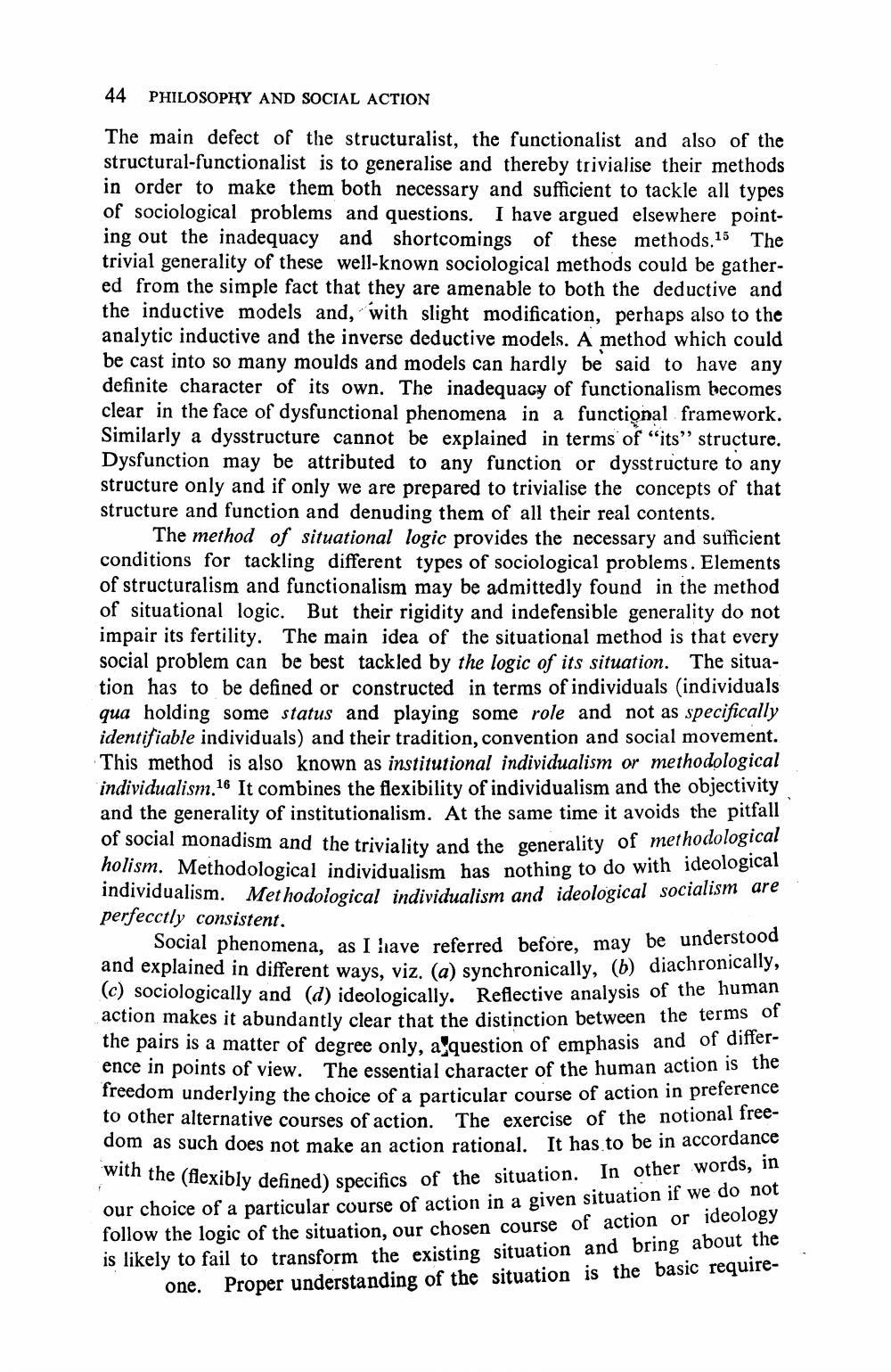Book Title: Matter And Method In Sociology And Ideology Author(s): D P Chattopadhyaya Publisher: D P Chattopadhyaya View full book textPage 6
________________ 44 PHILOSOPHY AND SOCIAL ACTION The main defect of the structuralist, the functionalist and also of the structural-functionalist is to generalise and thereby trivialise their methods in order to make them both necessary and sufficient to tackle all types of sociological problems and questions. I have argued elsewhere pointing out the inadequacy and shortcomings of these methods.15 The trivial generality of these well-known sociological methods could be gathered from the simple fact that they are amenable to both the deductive and the inductive models and, with slight modification, perhaps also to the analytic inductive and the inverse deductive models. A method which could be cast into so many moulds and models can hardly be said to have any definite character of its own. The inadequacy of functionalism becomes clear in the face of dysfunctional phenomena in a functional framework. Similarly a dysstructure cannot be explained in terms of "its" structure. Dysfunction may be attributed to any function or dysstructure to any structure only and if only we are prepared to trivialise the concepts of that structure and function and denuding them of all their real contents. The method of situational logic provides the necessary and sufficient conditions for tackling different types of sociological problems. Elements of structuralism and functionalism may be admittedly found in the method of situational logic. But their rigidity and indefensible generality do not impair its fertility. The main idea of the situational method is that every social problem can be best tackled by the logic of its situation. The situation has to be defined or constructed in terms of individuals (individuals qua holding some status and playing some role and not as specifically identifiable individuals) and their tradition, convention and social movement. This method is also known as institutional individualism or methodological individualism.16 It combines the flexibility of individualism and the objectivity and the generality of institutionalism. At the same time it avoids the pitfall of social monadism and the triviality and the generality of methodological holism. Methodological individualism has nothing to do with ideological individualism. Methodological individualism and ideological socialism are perfecctly consistent. Social phenomena, as I have referred before, may be understood and explained in different ways, viz. (a) synchronically, (b) diachronically, (c) sociologically and (d) ideologically. Reflective analysis of the human action makes it abundantly clear that the distinction between the terms of the pairs is a matter of degree only, a question of emphasis and of difference in points of view. The essential character of the human action is the freedom underlying the choice of a particular course of action in preference to other alternative courses of action. The exercise of the notional freedom as such does not make an action rational. It has to be in accordance with the (flexibly defined) specifics of the situation. In other words, in our choice of a particular course of action in a given situation if we do not follow the logic of the situation, our chosen course of action or ideology is likely to fail to transform the existing situation and bring about the one. Proper understanding of the situation is the basic requirePage Navigation
1 ... 4 5 6 7 8 9 10 11 12 13 14 15 16 17
